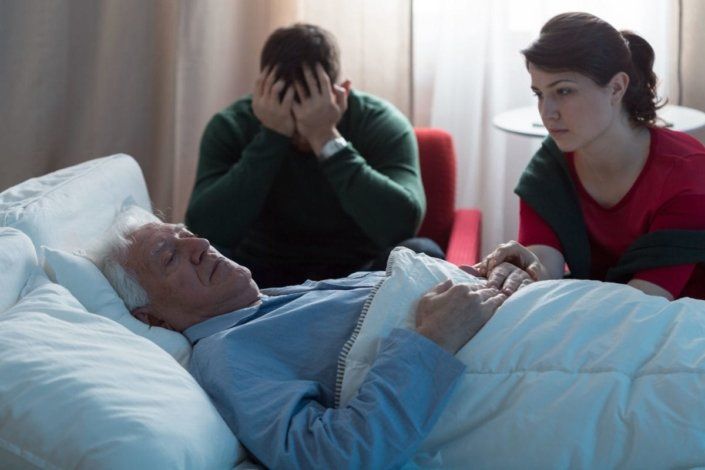Cancer: End-of-Life Problems for the Caregiver
Coping with the last levels of a liked one’s cancer is tough. It can be actually, emotionally, and mentally unpleasant for you personally, your family, as well as your cherished one. Planning certain issues beforehand can help convenience the burden. Ideally, you need to make these decisions together with your cherished one if they are usually in a position to participate. It assists you understand their wishes and provides them a feeling of handle. It relieves you from producing all the decisions. Preparing enables you to be even more present with your cherished one in the final times.
The American Academy of Loved ones Doctors (AAFP) recognizes that sufferers should have usage of palliative care prior to the last 6 several weeks of these life and/or hospice treatment within the last 6 weeks of these life.
Way to improved wellbeing
As a caregiver, there are several things to consider. Here are some end-of-life problems to go over and plan together with your cherished one.
Palliative treatment
Palliative treatment is a program you can decide for your beloved. It’s not centered on treatment. It’s centered on relieving discomfort and symptoms. In addition, it provides emotional, psychological, and spiritual assistance. Palliative care targets living every day as fully as you possibly can. Many people could be involved with this care. These range from members of medical care team, family, close friends, and a counselor or spiritual advisor. Palliative treatment may take place in a house, hospital, or hospice placing.
Hospice treatment
Hospice treatment is another provider for those who have malignancy. It targets a holistic approach. Treatment members from different locations provide relief, comfort, assistance, and instruction. Hospice treatment often includes around-the-clock clinical staff. Hospice care may take place in the home or in a nursing house.
Medical and legalities
Progress directives are directions on which kind of treatment your beloved wishes to receive. Speak to your cherished one about their requests. After that, utilize a lawyer to generate the paperwork. Follow the directives as soon as your beloved is no longer in a position to make medical choices. Types of directives consist of:
- Medical power of lawyer.
- Legal strength of attorney.
- Living will.
- Do-not-resuscitate (DNR).
- Organ donation.
Financial and legalities
An accountant or lawyer might help evaluate financial and legalities. These can include your cherished one’s insurance policies, lender accounts, or will. Request your loved one how to locate important documents and products. Examples are bank cards, bank accounts, pension accounts, car titles, plans, and mortgages.
Funeral arrangements
Possibly the hardest component of this technique is planning your treasured one’s funeral. Talk to your beloved about their choices. They may need a cremation or burial. They could want a open public memorial or perhaps a private one. It is possible to discuss budget based on who is within the costs. If your beloved wants a memorial support, you can discuss the arrangements. For instance, they may want specific readings, prayers, or tracks. They could want certain visitors to chat, preach, or bring the casket. Don’t believe that any details is too little to go over. You also can discuss what to use in their obituary or should they desire donations.
When choosing a funeral provider, make sure to compare costs, services, and payment choices. It will be far easier to perform this eventually. You will have less stress and fewer distractions. Funeral laws and regulations vary by state. Analysis what’s required and what’s optional.
Points to consider
Being truly a caregiver may need one to miss some function. You may need period off before and/or after your beloved passes. Find out what your employer’s plans are usually for bereavement and household medical related leave (FMLA).
Speak to your cherished one about any dying wants or requests. They could want your final visit from family members or friends. If they’re spiritual or religious, they could want a head to state prayers or have something. Make a set of people to get in touch with upon the loss of life of your cherished one. Often, this consists of family, friends, company, and community groupings.
